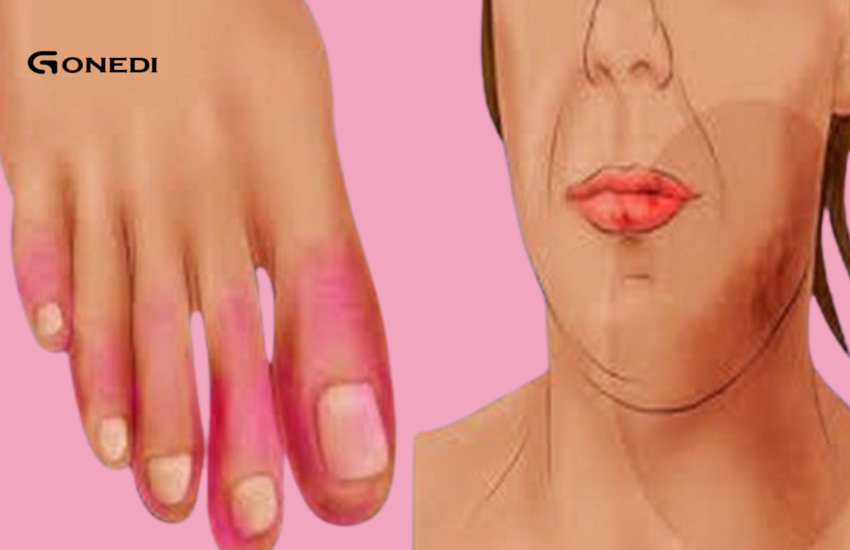The Nose Knows: Unraveling the Enigmatic Link Between Your Sens
What it means: Anosmia is a partial or complete loss of your sense of smell. While it can be caused by something as simple as a cold or sinus infection, it can also be a warning sign of more serious conditions, such as neurological disorders like Parkinson’s or Alzheimer’s.
What you can do: If you’re experiencing a persistent loss of your sense of smell for no apparent reason (such as a cold), it’s important to see a doctor. Early detection of neurological conditions can help with management.
- Increased sense of smell (hypersomia)
What it means: In some cases, your sense of smell may be heightened. This can make everyday smells overwhelming or even nauseating. Hyperosmia can be caused by pregnancy, hormonal imbalances, or conditions like migraines, certain medications, or temporal lobe epilepsy.
What you can do: If an intense smell becomes bothersome, see your healthcare provider to explore the underlying cause and possible treatments.
- Smell Disorder (Parosmia)
What it means: Parosmia is a condition in which familiar smells are perceived as unpleasant or strange. This can occur after illnesses such as the flu, COVID-19, or other viral infections. It has also been linked to neurological issues, such as brain injuries or severe psychological stress.
What you can do: If parosmia develops after an illness, it often improves over time as the olfactory system heals. If it persists, it is important to consult an ear, nose, and throat specialist or neurologist. - Changes in Smell and Chronic Conditions
What it means: Changes in your ability to smell can be a subtle indicator of other underlying health conditions. For example, diabetes, high blood pressure, and thyroid disorders can affect the olfactory system.
What you can do: Regular checkups and blood tests to monitor conditions such as diabetes or thyroid health can help manage any health complications and prevent them from affecting your sense of smell. - Olfactory Hallucinations (Phantom Smell)
What it means: Olfactory hallucinations are the phenomenon of smelling odors that aren’t actually there. People with phantom smell may experience unpleasant or unpleasant odors, even when there’s no external source. This can be linked to neurological disorders, seizures, or brain tumors.
What you can do: If you’re constantly experiencing phantom odors, it’s important to see a doctor or neurologist for further testing.
The Role of Smell in Memory and Emotion
The relationship between smell and the brain’s limbic system is particularly important in the context of memory and emotion. Here’s how your sense of smell can affect these areas of your life: - Smell and Memory
What it means: Smells have the unique ability to trigger vivid memories, often bringing back past experiences or emotions in great detail. This is because the olfactory bulb is closely linked to the hippocampus, the area of the brain responsible for memory formation.
How it affects you: A familiar smell, like your grandmother’s perfume or a particular dish, can instantly conjure up memories of a specific time, place, or person. This connection between smell and memory is why people with Alzheimer’s or dementia may still be able to recognize smells even when other memories are impaired. - Smell and Emotion
What it means: The limbic system doesn’t just govern memory, it also governs emotion. This means that smells can directly influence our feelings and emotional state. Pleasant smells, like lavender or fresh flowers, can make us feel calm, while unpleasant smells, like spoiled food or smoke, can trigger disgust or even anxiety.
How it affects you: Research suggests that certain scents can be used therapeutically to help manage stress and improve mental health. For example, aromatherapy with essential oils like lavender, peppermint, or citrus has been shown to have calming and mood-boosting effects.
Smell and the Immune System
Interestingly, your sense of smell may also be linked to your immune system. Studies have suggested that certain scents can have immune-boosting effects. For example:
Citrus scents (such as lemon) are thought to stimulate the production of white blood cells, which help fight infection.
Eucalyptus and peppermint oils have been shown to have antimicrobial properties, which can support respiratory health.
How to Take Care of Your Sense of Smell
Taking care of your nose and olfactory system is crucial to your overall health. Here are some tips:
Avoid exposure to harsh chemicals: Prolonged exposure to chemicals such as cleaning products, tobacco smoke, or industrial pollutants can damage your sense of smell. If you work with strong-smelling materials, be sure to use protective equipment.
Practice good nasal hygiene: Rinse your nose regularly with a saline solution or neti pot to remove allergens, dust, and mucus.
Stay hydrated: Dehydration can affect your ability to smell, so be sure to drink enough water.
Protect your sinuses: Use a humidifier during dry weather to keep your nasal passages moist and warm.


